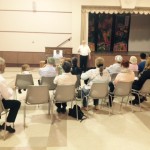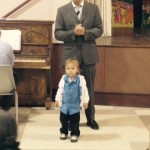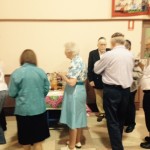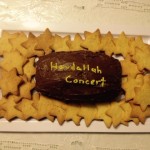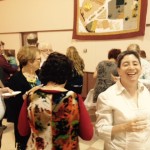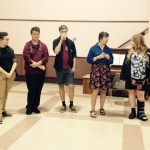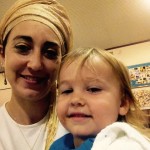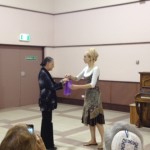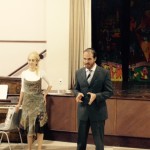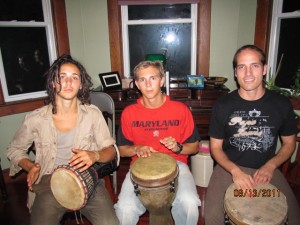The Shabbos Project Adelaide: Havdallah Concert
The Shabbos Project in Adelaide capped off a great and inspirational weekend of activities with a havdallah ceremony and impressive concert by Rabbi Heilbrunn of Melbourne and the AHC’s own Rabbi Ben. First was the communal havdallah ceremony, which was followed by singing by Rabbi Heilbrunn, whose operatic cantorial style reverberated throughout the hall. Local Matthew generously joined in on the piano in accompaniment. Then Rabbi Ben sang some traditional yiddish songs, which the older members of the congregation especially appreciated. There was a break for refreshments prepared by Rebbetzin Rachel and her cheder girls. Then the Jewish Adelaide Zionist Youth (JAZY) organization did a performance with group participation to show some of the adults the fun they are missing out on by not being young enough to join anymore! Finally, a sing-along and kumzitz topped off the night… although, of course, some members lingered to schmooze afterwards! All in all, it was an amazing and inspirational night. Many members of the Adelaide Jewish community are already asking if we will do it again next year! So put it in your travel plans and we’ll see you then!
- Rabbi Philip Heilbrunn performing at the Adelaide Shabbos Project Havdallah Concert
- Adventuring Akiva joins the Traveling Rabbi on stage for a performance at the havdallah concert
- Congregants enjoy refreshments at the Adelaide Hebrew Congregation havdallah concert
- Rebbetzin Rachel made this cake & cookies with the girls in her cheder class. They were a hit!
- Congregants at the AHC enjoying refreshments during the havdallah concert
- The Jewish Adelaide Zionist Youth (JAZY) group put on a performance.
- Who are you #keepingittogether with? #ShabbosProject
- Rebbetzin Rachel delivers thanks and gifts for some members of the Jewish community who were instrumental in bringing the Shabbos Project to life in Adelaide
- Rabbi Ben and Rebbetzin Rachel deliver thanks and awards after the havdallah concert


